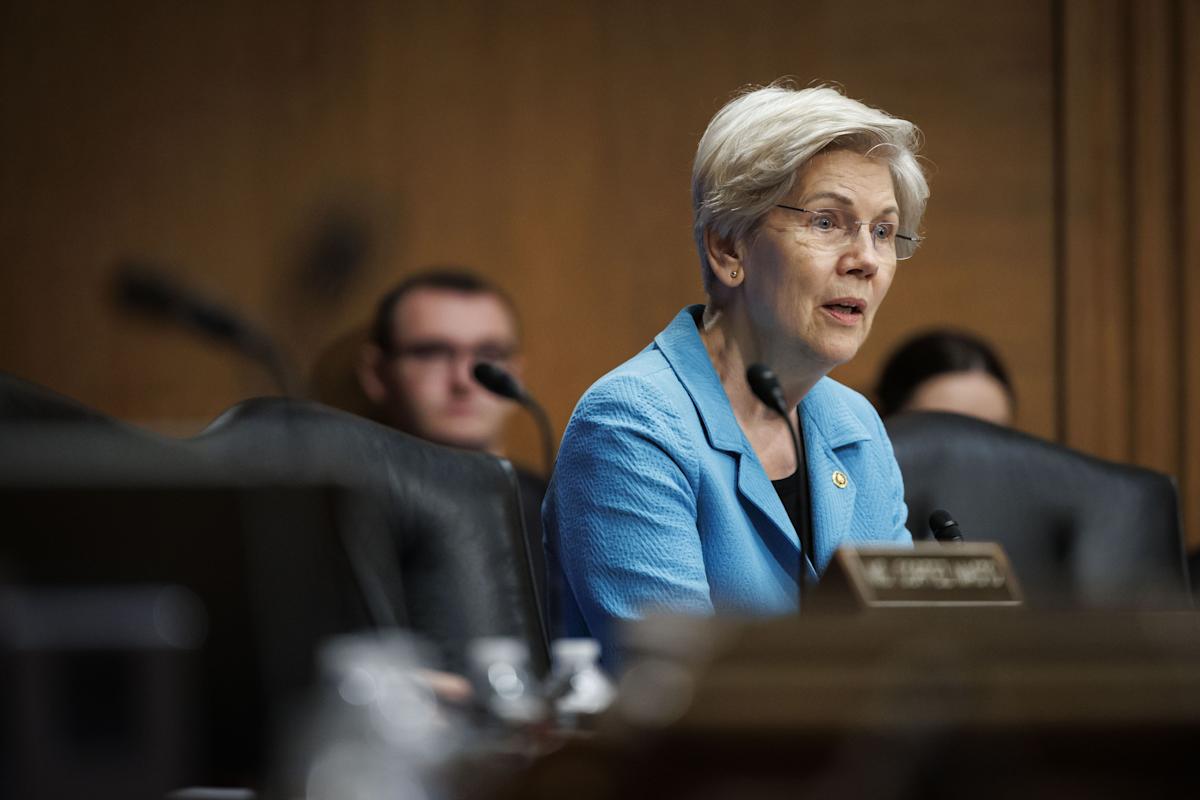Elizabeth Warren Warns: Firing Fed Chair Powell Could Trigger a U.S. Market Meltdown
Elizabeth Warren Warns: Firing Fed Chair Powell Could Trigger a U.S. Market Meltdown
By
David Goldfarb
Last updated:
April 17, 2025
First Published:
April 17, 2025

Source: Yahoo
Warren Sounds the Alarm on Market Stability
Senator Elizabeth Warren (D-Mass.) issued a stark warning on Thursday: if former President Donald Trump were to fire Federal Reserve Chair Jerome Powell, it could spark a massive collapse in the U.S. financial markets.
Her comments came during an interview on CNBC’s Squawk on the Street, shortly after Trump posted on Truth Social that “Powell’s termination cannot come fast enough!”—a statement that raised immediate concerns about the politicization of the U.S. central bank.
Warren, who has frequently clashed with Powell over regulatory and monetary policy, emphasized that removing the Fed Chair based on political motives would undermine investor confidence, destabilize the markets, and erode trust in America’s economic institutions.
Can Trump Actually Fire the Fed Chair?
While Trump’s frustration with Powell is nothing new, a senior White House official clarified to CNBC that the comment should not be interpreted as an imminent plan to terminate Powell’s tenure, which runs until May 2026. Legally, the Federal Reserve Chair can only be removed "for cause", and Powell has asserted in the past that the president does not have unilateral authority to dismiss him.
However, with Trump’s track record of testing legal boundaries and his re-election bid gaining momentum, the hypothetical scenario is causing anxiety across Wall Street.
What’s Really at Stake?
Speaking from the floor of the New York Stock Exchange, Warren laid out the deeper danger: a politicized Federal Reserve would strip away the independence critical to global economic stability.
“If a U.S. president can simply wave a wand and fire the Fed Chair for not following orders, we cease to be a global economic leader — and start looking like a third-rate dictatorship,” Warren said.
She pointed out that the credibility of U.S. markets hinges on the belief that economic policy is guided by data and long-term strategy — not short-term political gain.
A History of Tension Between Trump and Powell
Trump’s discontent with Powell began during his own presidency. He publicly berated the Fed Chair for raising interest rates when Trump wanted to boost economic growth heading into the 2020 election.
Fast forward to today, and Trump’s rhetoric has intensified. In his Truth Social post, Trump labeled Powell as “always TOO LATE AND WRONG” and blamed him for sluggish rate cuts that could hinder economic momentum.
The irony? Under Powell, the Fed has walked a tightrope, increasing interest rates aggressively between 2022 and 2023 to combat the highest inflation in four decades — largely fueled by pandemic-era spending and supply chain shocks. By early 2024, the Fed began easing rates again, but Powell made it clear in a recent speech at the Economic Club of Chicago that further cuts will depend on incoming economic data and stability in global trade policy — including tariffs.
Markets on Edge: Investor Sentiment & Economic Signals
The implications of Trump’s potential interference in the Fed have not gone unnoticed in the markets. According to a recent Bank of America investor survey:
- 72% of institutional investors cite central bank independence as a top concern heading into the 2024 election cycle.
- The S&P 500 dropped over 1.4% in a single day following Trump’s Truth Social remarks.
- Gold prices rose, indicating a flight to safety.
Financial historian Liaquat Ahamed, author of Lords of Finance, said in an interview with The Financial Times, “Central banks operate best when insulated from politics. Any perception that the Fed is just another arm of the White House erodes long-term trust in U.S. financial stewardship.”
Broader Policy Context: Tariffs, Rates, and Inflation
Adding fuel to the fire, Trump continues to push an aggressive tariff agenda that Powell believes could further disrupt inflation targets. In his Chicago speech, Powell said, “The uncertainty from unpredictable trade policies is likely to push us away from our dual mandate of stable prices and maximum employment.”
While core inflation has dipped from its 9.1% peak in June 2022 to around 3.2% as of March 2025, it remains above the Fed’s 2% target. Meanwhile, GDP growth slowed to 1.8% in Q1 2025, and job growth has also decelerated — making interest rate decisions even more delicate
A Test of American Economic Credibility
Senator Warren’s comments highlight more than just a political rivalry — they reveal the fragile balance between economic independence and political influence. The potential firing of Jerome Powell, even if hypothetical, shakes the foundational trust global markets place in the U.S. monetary system.
In an election year where the stakes are already high, one thing is clear: the independence of the Federal Reserve will remain a critical barometer of America’s economic leadership — and investors will be watching every move.
Popular articles
Subscribe to unlock premium content
Gordie Howe Bridge: A $4.6B Gamble on North American Trade at Risk from Rising Tariffs

Why Designers Are Rethinking Pantone: The True Cost of Color Consistency in 2025

Point Roberts Faces Economic Collapse Amid U.S.-Canada Trade Tensions

Gordie Howe Bridge: A $4.6B Gamble on North American Trade at Risk from Rising Tariffs

Why Designers Are Rethinking Pantone: The True Cost of Color Consistency in 2025

Gordie Howe Bridge: A $4.6B Gamble on North American Trade at Risk from Rising Tariffs









